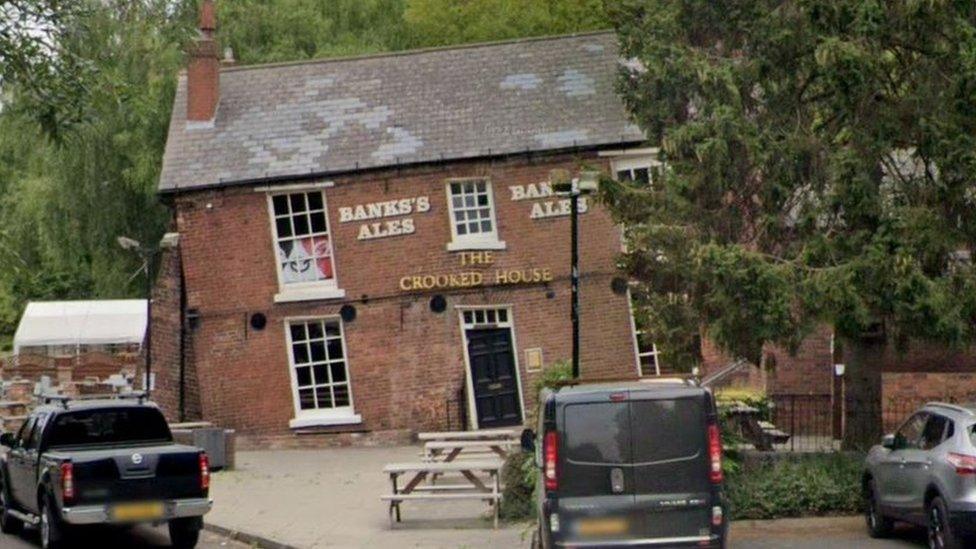The Crooked House: Mystery and anger surround wonky pub destruction
- Published
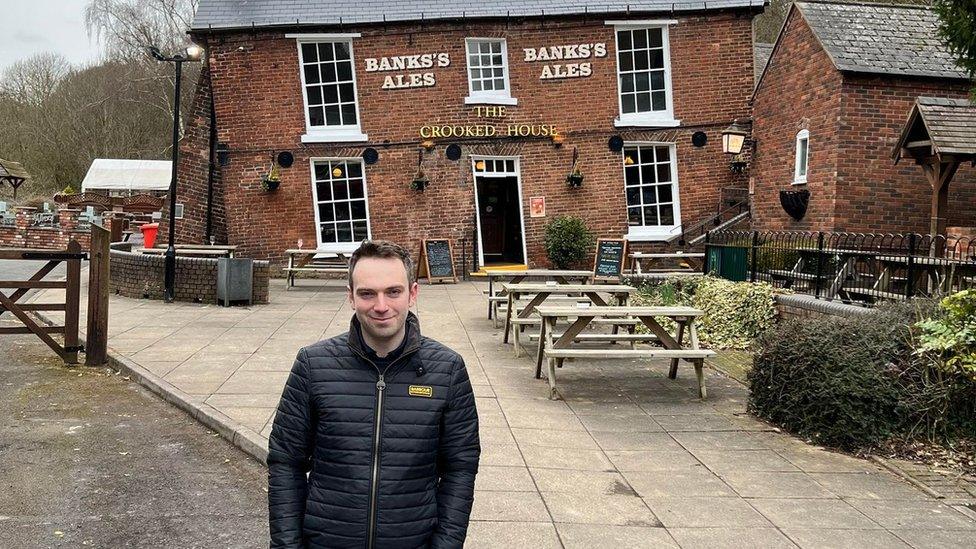
Matt Wright said he believed The Crooked House was the "only pub in the world" you could walk out feeling more sober than when you entered it
Mystery surrounding the destruction of The Crooked House in the West Midlands has prompted a sense of anger and grief, and not only in the local community.
Many stories have emerged, sharing sometimes very personal connections with what was once dubbed the UK's "wonkiest" pub.
"I think it was the only pub in the world, when you walk out, you feel more sober," customer Matt Wright said.
A week ago, having recently been sold to new owners, it stood proud, if at an angle that made you question its durability.
But on Saturday, a fire, later to be treated by police as arson, left it an empty shell, only for the remains to be mysteriously demolished less than 48 hours later.
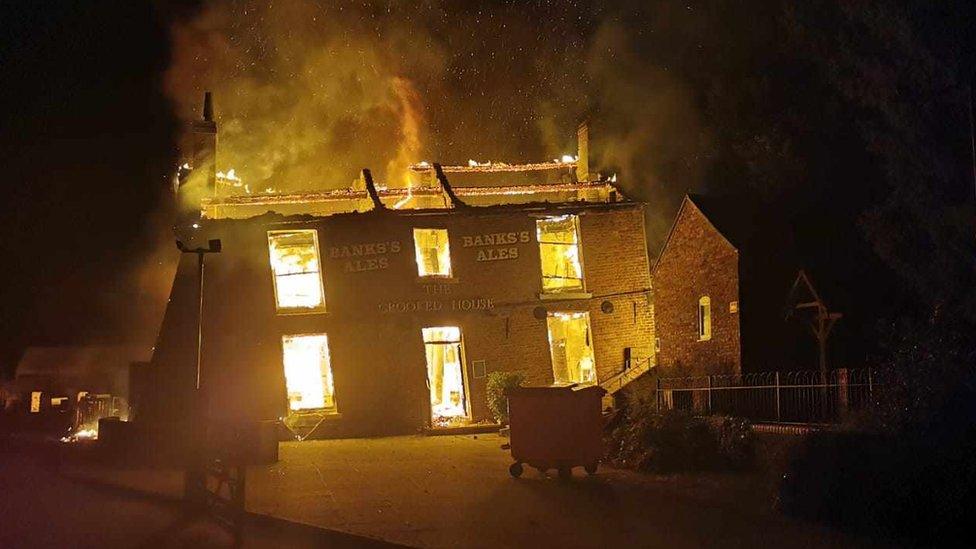
Flames ripped through the 18th Century building in Himley on Saturday night
"It is like losing someone in your family. It's still the lack of belief it has really gone," Mr Wright said.
"It was like the beating heart of the Dudley community. It didn't matter where you went, when you told people you were from Dudley, a lot of people would mention The Crooked House."
The 45-year-old has become part of a Facebook group campaigning to rebuild it, which has seen its numbers swell to more than 13,000.
How the pub got its stoop is the stuff of Black Country legend.
The building itself dates back to the 18th Century when, in 1765, it was built as a farmhouse. In about 1830 it was converted into a pub and named the Glynne Arms, after the landowner at the time, Sir Stephen Glynne.
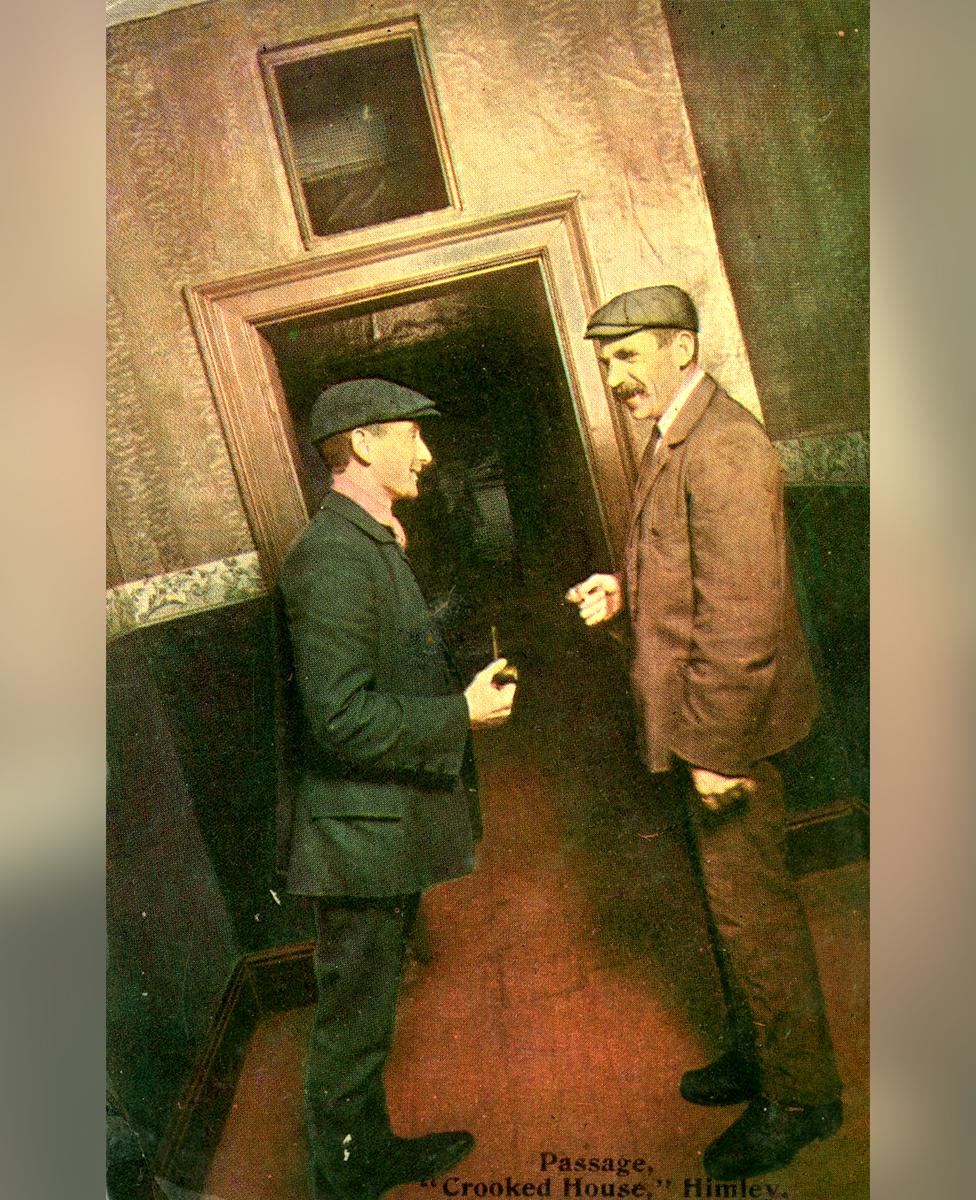
It was known locally as The Crooked House from the early 1900s, but it would be almost another 100 years until it was officially renamed
The "crooked-ness" began in the middle of the 19th Century when, due to mining work in the area, the building began to subside on one side.
The lean was about 15 degrees and it would have collapsed but for the addition of buttresses to support one side, the Lower Gornal local history group said, external.
It was then known by locals in the area as the "siden house" or "sidin" (side-in) as an expression in the area for crooked, the group added.
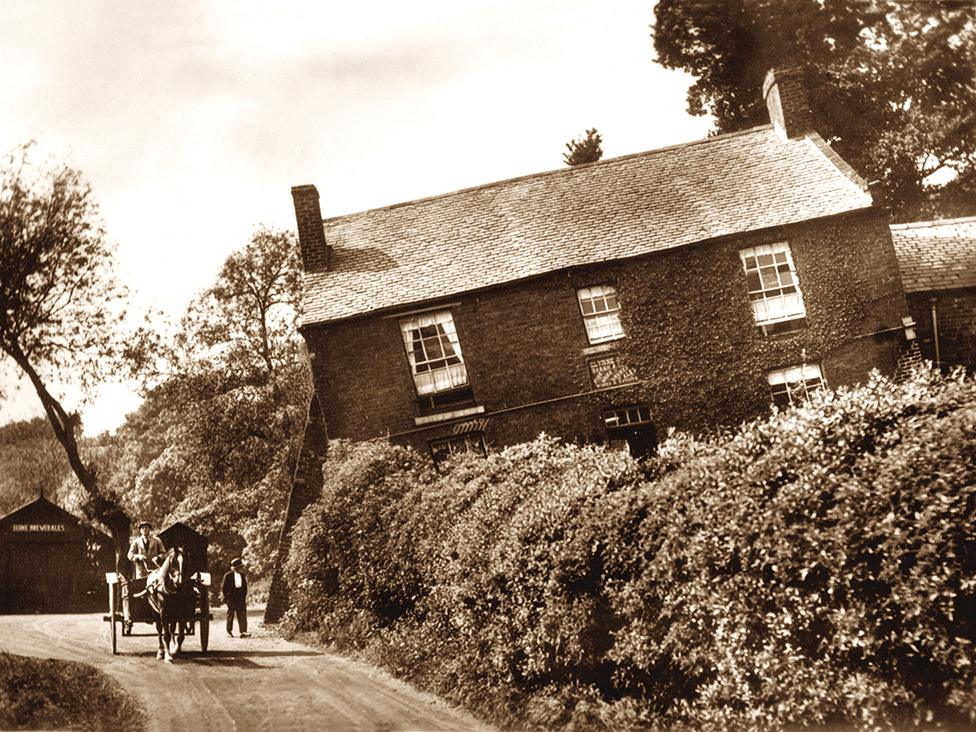
At one stage, the lean on the Glynne Arms was about 15 degrees, a local historian said
The pub was condemned in the 1940s and would have been demolished but instead the buttresses on the south side were further strengthened.
It's not clear how gradual the subsidence was or why the decision was first made to support the structure, rather than demolish it, Colin Morris, from the local history group, said.
Further repairs were carried out in the following decades by owners Wolverhampton and Dudley brewery, and the pub gained the name The Crooked House in 2002, although it had been known as that locally from the turn of the 20th Century, as postcards showed.
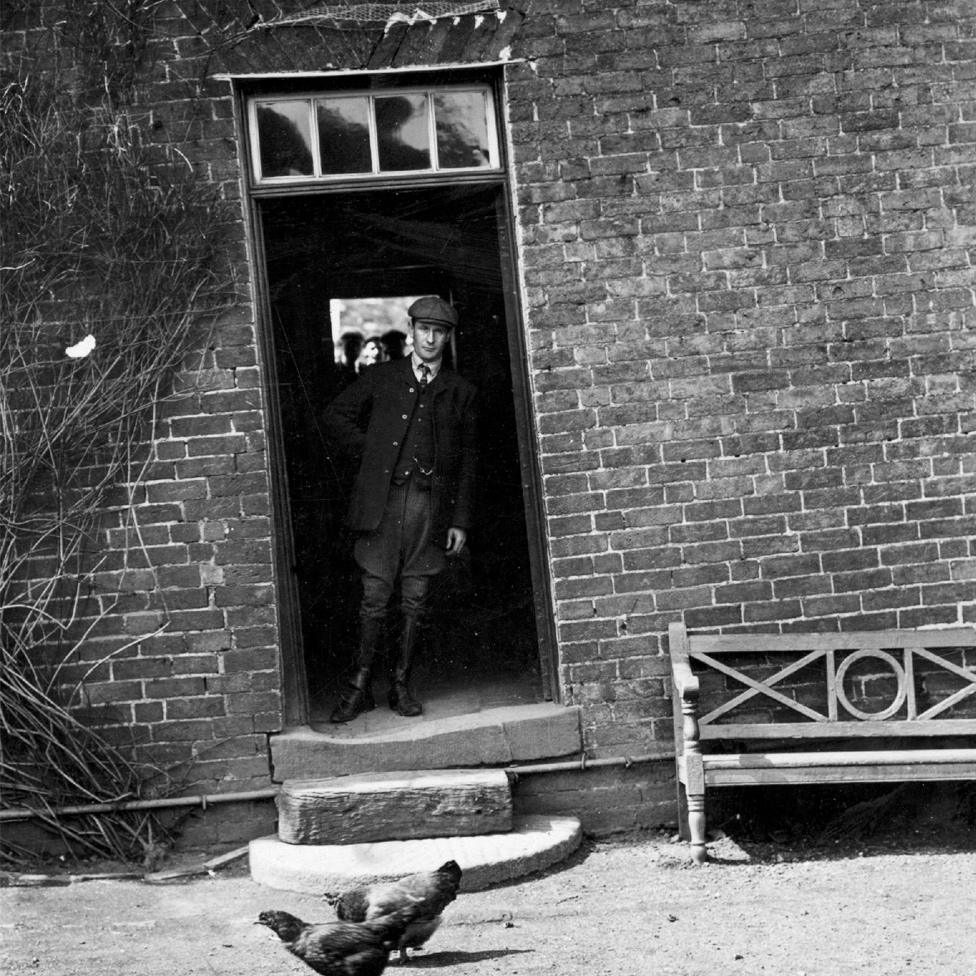
The Crooked House's lean, here pictured in 1907, began in the middle of the 19th Century when one side began to subside due to mining works
But to many in the Black Country, it was so much more.
"It was Dudley's Leaning Tower of Pisa for a long time," local author Miranda Dickson said.
She said she regularly visited The Crooked House from her childhood and added it was "part of our local psyche".
"It was a very strange place to drink in, you didn't want to be having a few drinks and then sitting there because already the room was spinning," she said.
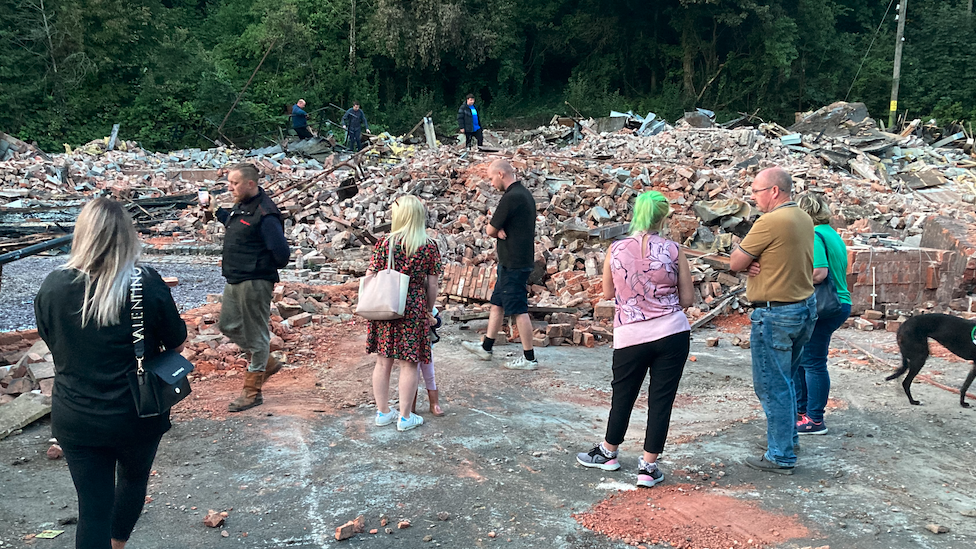
People visited the site on Monday and Tuesday after news spread about the demolition
When the BBC's Nationwide programme visited in September 1974, much was made of how bottles and other objects appeared to defy gravity by seeming to roll uphill.
Since then, many have said they have tried the same trick with marbles, including Cora Barras who, on a visit from Northern Ireland with her daughter, said "the thrill of trying to figure out" what was going on was "such fun".
Georgia Witton said a university friend made a special request to go the pub and roll a marble up the bar during a visit.
"I just remember the magic of it - the fact it was wonky, people would talk about it and you'd see it really was like that," she said.
The BBC's Nationwide programme spent an afternoon inside The Crooked House in 1974
The place was so unique, Sara Howes and her husband Mic could not think of a better place to celebrate their wedding in September 2021.
"We chose there as it was quirky and matched our aesthetic," she said.
But as well as talking of the magic of the place, feelings quickly turn to anger at The Crooked House's destruction.
"I feel angry - I don't understand how it was able to happen," Mrs Howes said.
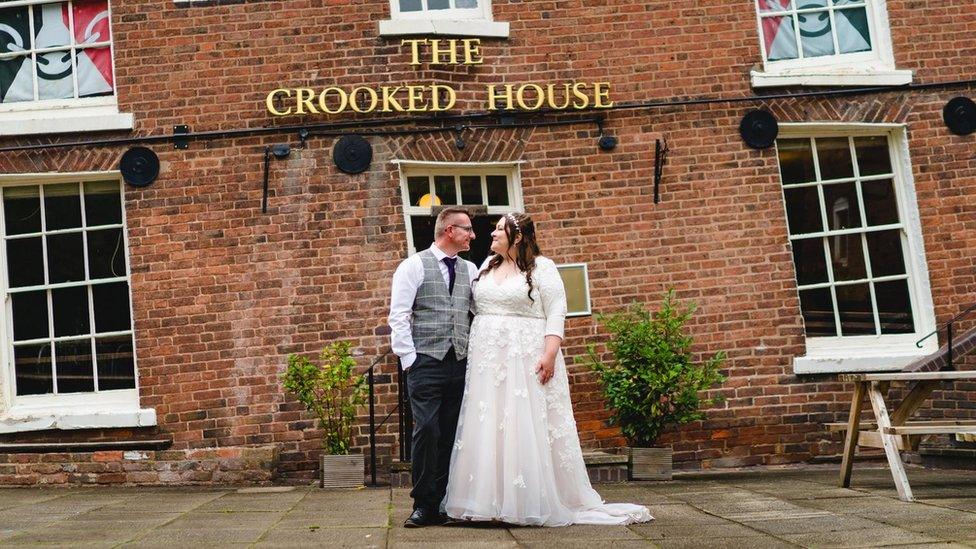
The pub's unique qualities enticed Sara Howes and her husband to celebrate their wedding there in 2021
Kel Cunningham, who regularly visited the Crooked House on trips back to the area said she almost "burst with pride" to take her husband there in December.
"I am devastated, it's like mourning the loss of a family member - she won't ever be the same," she said.
There has been talk, including from the mayor of the West Midlands, of rebuilding the pub, although others have questioned whether that would even be possible.
It's a move Mrs Dickinson would support, although "it would not be the same building" she said.
"It's such an important part of all of our childhoods here," she added.
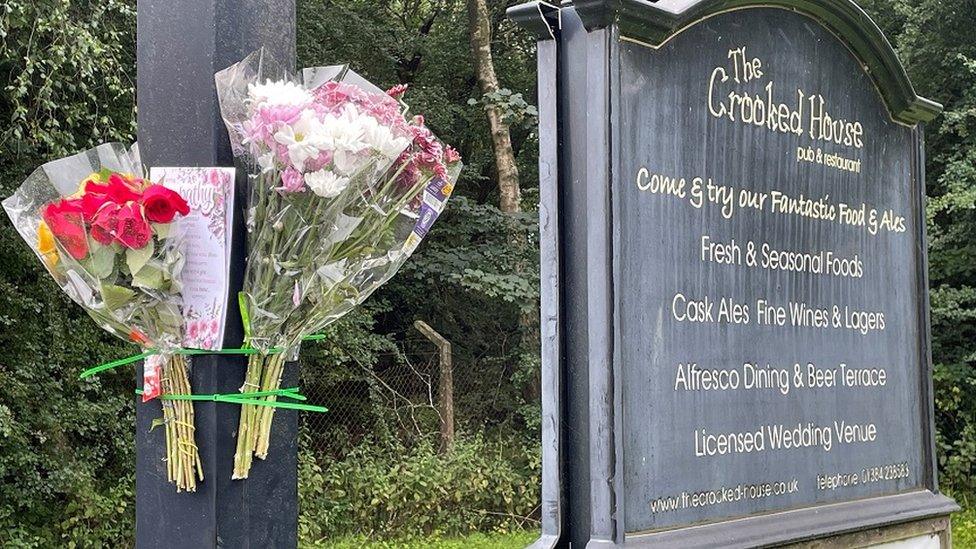
Flowers and cards were left near the pub after it was demolished, with many local residents expressing feelings of grief

Follow BBC West Midlands on Facebook, external, Twitter, external and Instagram, external. Send your story ideas to: newsonline.westmidlands@bbc.co.uk, external
- Published10 August 2023
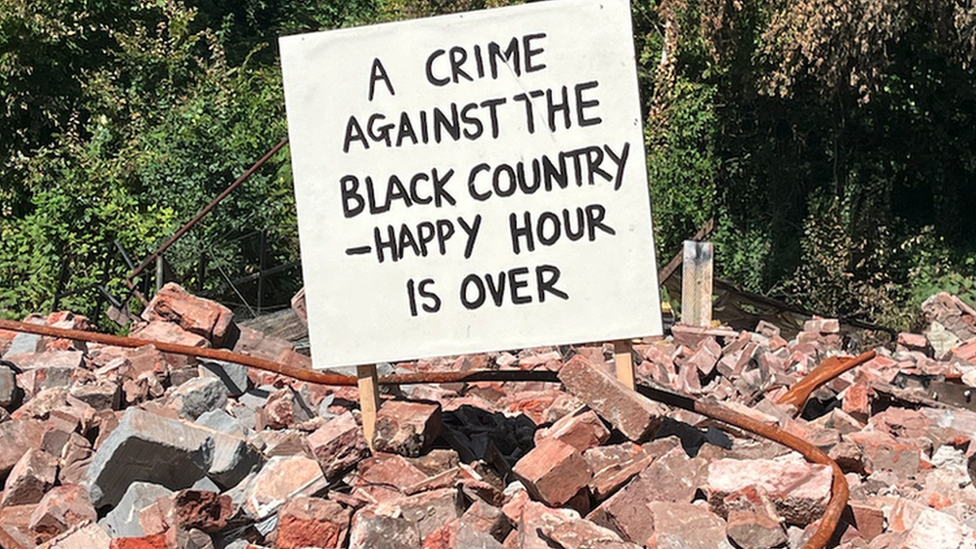
- Published9 August 2023

- Published9 August 2023
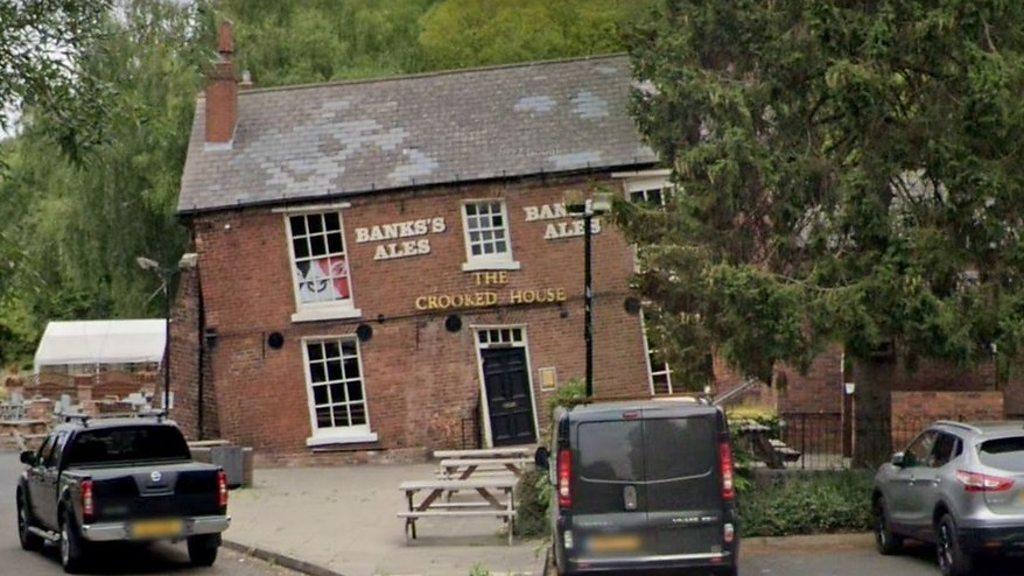
- Published9 August 2023
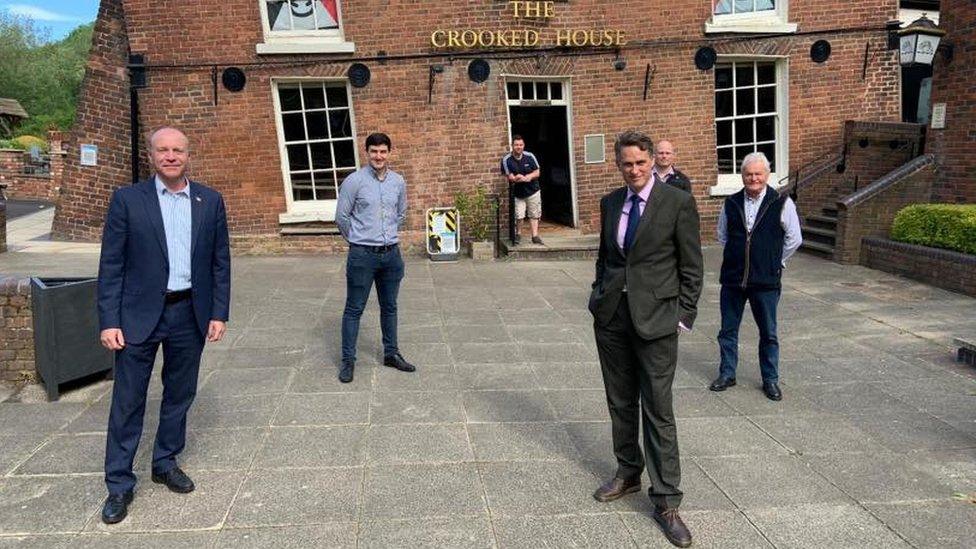
- Published9 August 2023
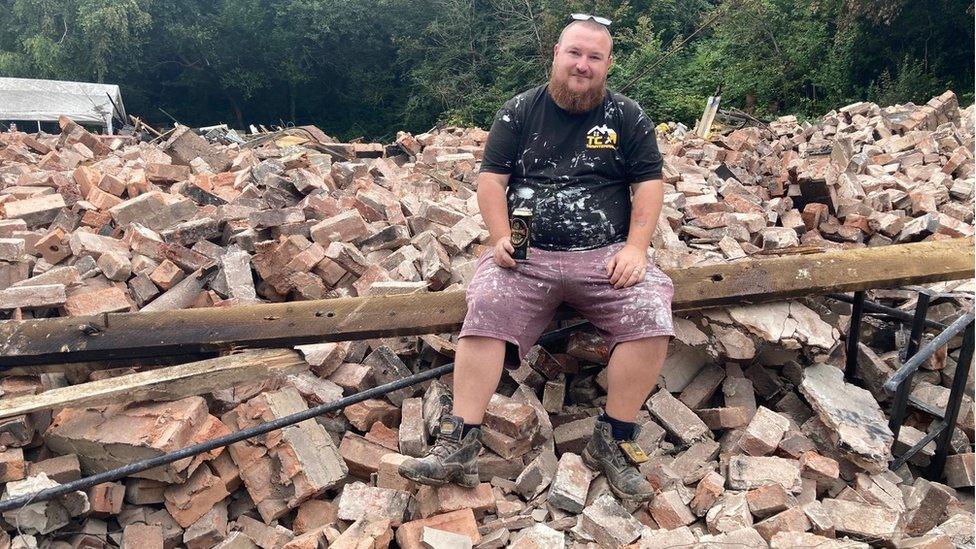
- Published8 August 2023
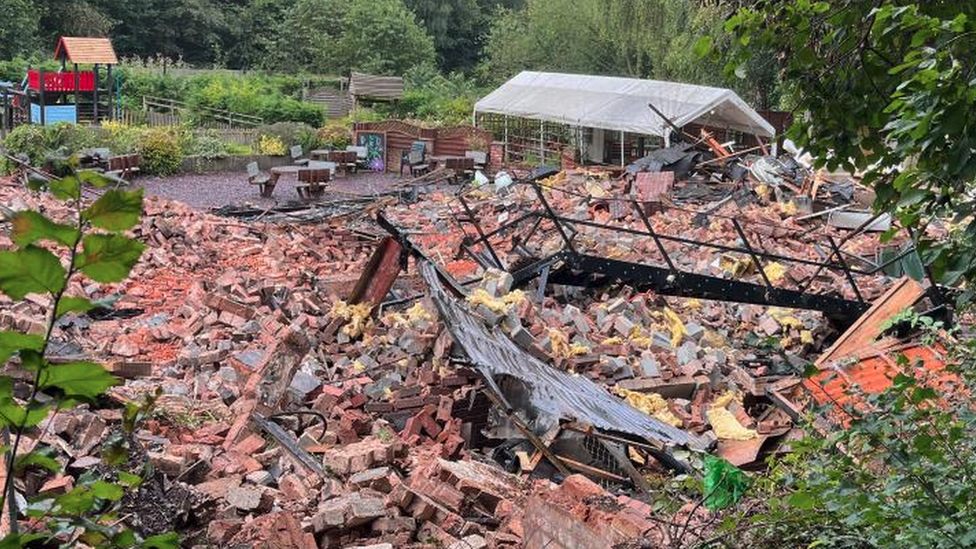
- Published7 August 2023
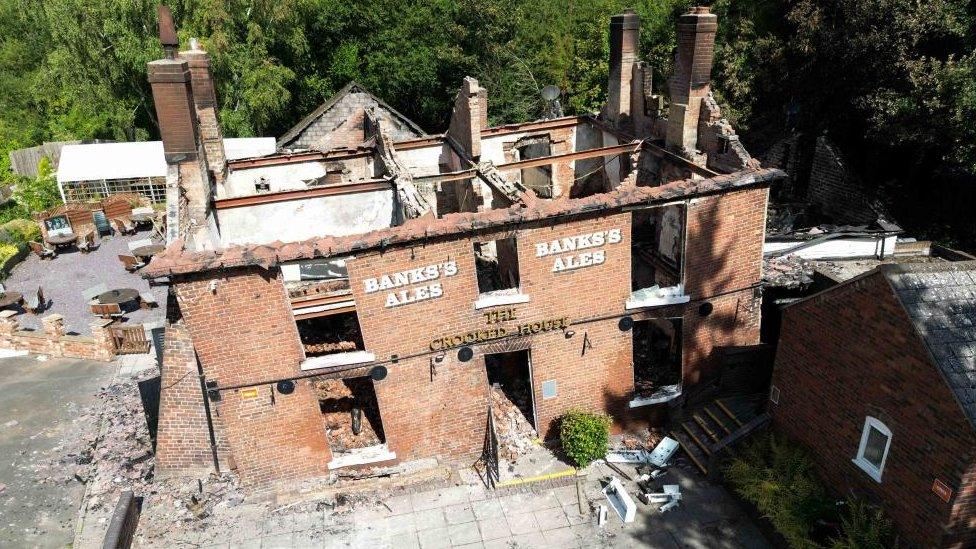
- Published7 August 2023
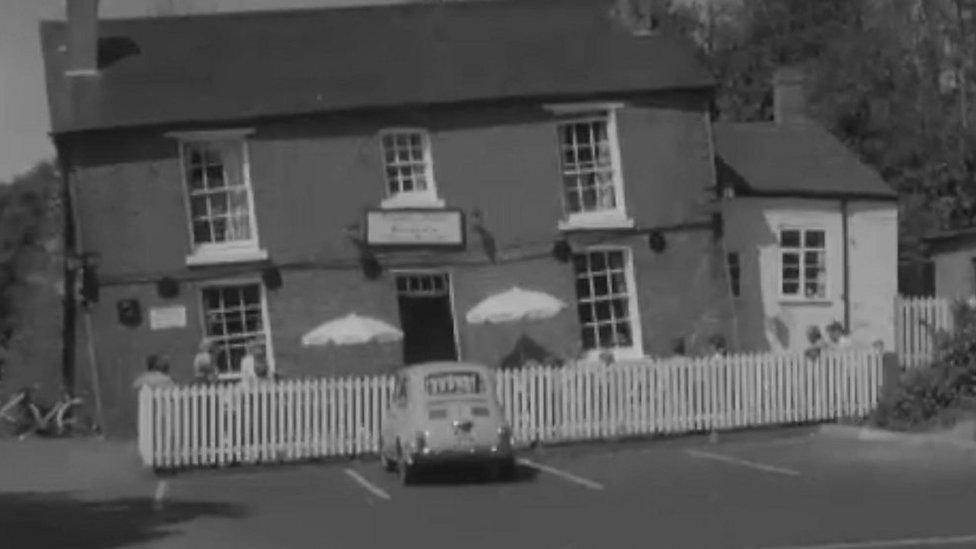
- Published6 August 2023

- Published28 July 2023
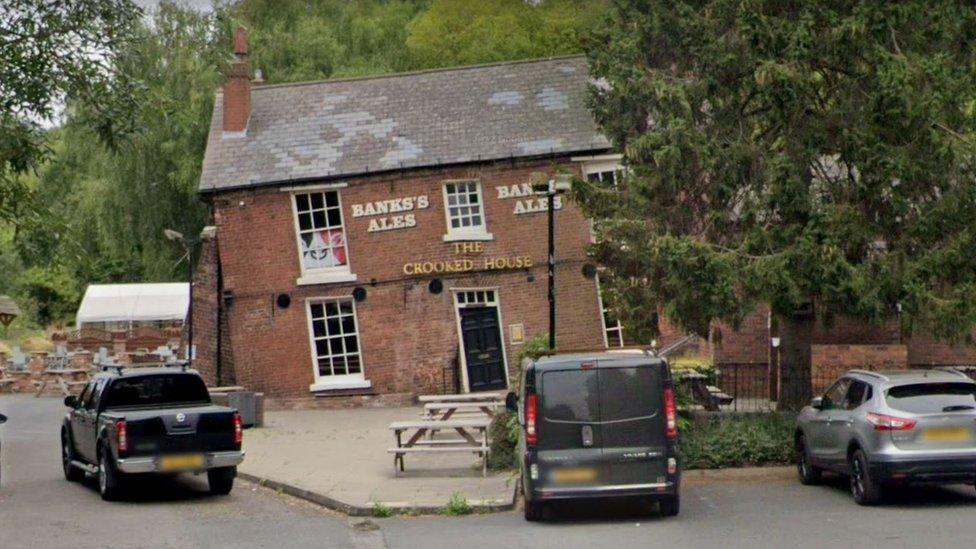
- Published10 March 2023
